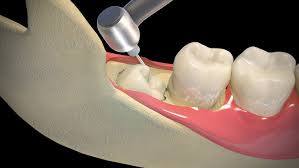Understanding DBS Checks: Types, Importance, and Procedures

In the modern employment landscape, safeguarding vulnerable individuals is paramount. One of the pivotal measures in this regard is the Disclosure and Barring Service (DBS) check, a tool used extensively in the UK to help employers make safer recruitment decisions. The DBS check is crucial for roles that involve working with children, vulnerable adults, or in positions of trust. This article delves into the various types of DBS checks, their importance, and the processes involved, including police checks and ACRO.
Types of DBS Checks
DBS checks come in three primary types: Basic, Standard, and Enhanced. Each level provides varying degrees of scrutiny and information.
Basic DBS Check
The Basic DBS check is the most fundamental level of screening. It reveals any unspent convictions or conditional cautions the applicant may have. This type of check is available to any individual or employer and is often used for positions that do not require close contact with vulnerable groups but still necessitate a level of trustworthiness. For instance, many companies conduct Basic DBS checks for roles in administration, customer service, and retail.
Standard DBS Check
A Standard DBS check offers a more detailed search compared to the Basic check. It includes information about both spent and unspent convictions, cautions, reprimands, and final warnings held on the Police National Computer (PNC). This level of check is generally required for roles that involve a higher degree of responsibility or trust, such as those in healthcare, legal professions, or financial services.
Enhanced DBS Check
The Enhanced DBS check is the most comprehensive type. In addition to the information provided by a Standard check, it includes any additional information held by local police that is considered relevant to the role being applied for. This check is essential for positions involving regular, unsupervised contact with children or vulnerable adults, such as teaching, childcare, and certain healthcare roles. The Enhanced check also includes a check against the children’s and/or adults’ barred lists, which are lists of individuals barred from working with these groups.
Importance of DBS Checks
DBS checks are integral to maintaining a safe and secure environment in workplaces, especially those involving vulnerable populations.
Protection of Vulnerable Groups: The primary purpose of DBS checks is to prevent individuals with a history of harmful behavior from gaining access to children and vulnerable adults. This is crucial in sectors like education, healthcare, and social services.
Maintaining Trust: For employers, conducting DBS checks helps ensure that they are hiring individuals who are trustworthy and reliable. This is particularly important in roles that involve significant responsibility, such as handling sensitive information or financial transactions.
Legal Compliance: In many sectors, obtaining a DBS check is a legal requirement. Failing to conduct the appropriate level of check can result in legal consequences for the employer, including fines and damage to reputation.
Peace of Mind: For employees and service users, knowing that thorough background checks have been conducted provides peace of mind and contributes to a safer working and service environment.
Police Checks and ACRO
In addition to DBS checks, other forms of background checks, such as police checks and those conducted by the Association of Chief Police Officers Criminal Records Office (ACRO), play a significant role in the vetting process.
Police Checks
Police checks typically refer to searches conducted through the Police National Computer (PNC) for any criminal history. This is a component of the Standard and Enhanced DBS checks but can also be requested separately in certain situations. Police checks are vital for roles that require a high level of security clearance or involve significant trust and responsibility.
ACRO Checks
ACRO provides criminal records checks and services on a national and international level. These checks are particularly useful for individuals who have lived or worked abroad and need their criminal records from outside the UK checked. ACRO facilitates access to police records and helps ensure comprehensive vetting for individuals with a complex history or those applying for positions that require stringent background scrutiny.
DBS checks, encompassing Basic, Standard, and Enhanced levels, are fundamental in safeguarding vulnerable individuals and maintaining trust within various sectors. By ensuring that individuals with relevant criminal histories are identified and app ropriately screened, these checks help create safer communities and workplaces. Complementary checks through police databases and ACRO further enhance the robustness of the vetting process. For employers and organizations, understanding and implementing these checks correctly is not only a legal requirement but also a critical component of ethical and responsible recruitment practices.



